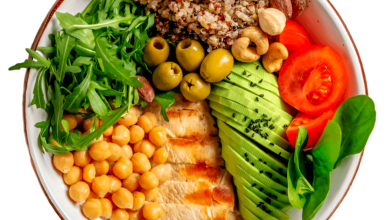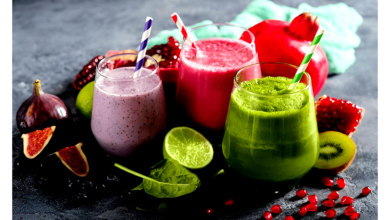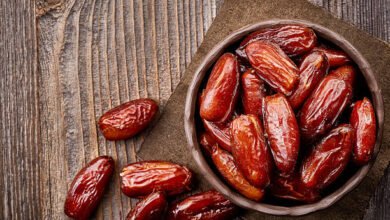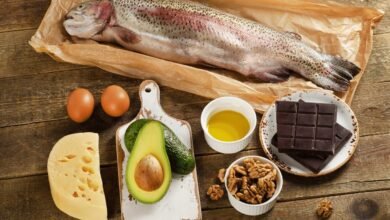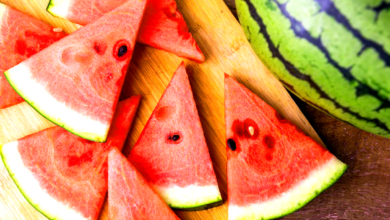Top 10 Anti-Inflammatory Foods to Add to Your 2025 Grocery List
Discover the top 10 anti-inflammatory foods for 2025 Boost health naturally with these nutrient-packed choices to reduce chronic inflammation
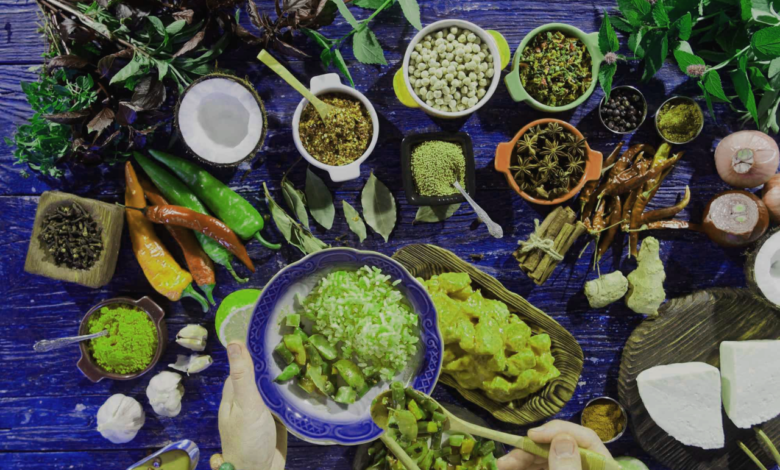
Chronic inflammation is at the root of many modern health concerns, from joint pain and digestive issues to more serious conditions like heart disease and diabetes. Fortunately, one of the most effective ways to combat inflammation naturally is through diet specifically by incorporating powerful anti-inflammatory foods into your daily meals. As we move into 2025, prioritizing these nutrient-dense, healing foods can help reduce inflammation, boost immunity, and promote long-term wellness. This article explores the top 10 scientifically backed anti-inflammatory foods that deserve a permanent spot on your grocery list.
The connection between diet and inflammation is undeniable what we eat directly influences our body’s inflammatory response. By choosing the right anti-inflammatory foods, you can help your body heal from within, improving energy levels, reducing pain, and protecting against chronic disease. Whether you’re dealing with existing inflammation or simply looking to prevent future health issues, these 10 foods offer delicious and practical ways to support your well-being in the coming year and beyond.
Top 10 Anti-Inflammatory Foods to Add to Your 2025 Grocery List
Fatty Fish
Fatty fish are among the best sources of omega-3 fatty acids, particularly EPA and DHA, which are renowned for their anti-inflammatory properties. Studies show that regular consumption of salmon, mackerel, or sardines can reduce markers of inflammation, such as C-reactive protein (CRP). These healthy fats also support brain function and cardiovascular health. For optimal benefits, aim for at least two servings per week. Grilled, baked, or even canned (in water or olive oil), fatty fish is a versatile addition to salads, pastas, and grain bowls.
Berries
Rich in Potent Antioxidants
Berries owe their deep, vibrant colors to anthocyanins—powerful antioxidants with strong anti-inflammatory properties. These compounds combat oxidative stress by neutralizing harmful free radicals that contribute to chronic inflammation, cellular damage, and premature aging. Studies show that regular berry consumption can lower inflammatory markers like C-reactive protein (CRP), making them essential for long-term health.
Enhance Recovery & Immune Function
Blueberries, in particular, have been found to reduce exercise-induced muscle damage and inflammation, speeding up recovery. Their high flavonoid content also strengthens the immune system by modulating immune cell activity. Strawberries, rich in vitamin C and quercetin, further support immunity while helping to alleviate inflammatory conditions like arthritis and metabolic disorders.
Versatile & Delicious for Daily Consumption
Berries are one of the easiest anti-inflammatory foods to incorporate into your diet. Enjoy them fresh as a snack, frozen in smoothies, or blended into overnight oats and yogurt. Their natural sweetness makes them a perfect substitute for sugary desserts, while their fiber content promotes gut health a crucial factor in managing systemic inflammation. For maximum benefits, aim for at least ½ to 1 cup daily.
Leafy Greens
Dark leafy greens are nutritional powerhouses, rich in vitamins A, C, and K, as well as flavonoids and polyphenols that combat inflammation. Spinach, for example, contains high levels of beta-carotene and lutein, which help protect cells from damage. Incorporating a variety of greens into salads, soups, or sautéed dishes ensures a steady intake of these protective nutrients.
Turmeric
Turmeric, the golden spice, contains curcumin, a potent anti-inflammatory compound. Research suggests that curcumin can be as effective as some anti-inflammatory drugs—without the side effects. However, curcumin is poorly absorbed on its own, so pairing it with black pepper (which contains piperine) enhances absorption. Try adding turmeric to curries, soups, or golden milk for maximum benefits.
Extra Virgin Olive Oil
A staple of the Mediterranean diet, extra virgin olive oil (EVOO) is rich in oleocanthal, a compound with effects similar to ibuprofen in reducing inflammation. EVOO also provides heart-healthy monounsaturated fats and antioxidants. Drizzle it over salads, use it for light sautéing, or blend it into dressings for a flavorful and health-promoting boost.
Nuts and Seeds
Nuts and seeds are excellent sources of healthy fats, fiber, and antioxidants. Walnuts, for instance, contain high levels of alpha-linolenic acid (ALA), a plant-based omega-3 that helps reduce inflammation. Almonds provide vitamin E, which protects cells from oxidative damage. Sprinkle chia or flaxseeds on yogurt, blend them into smoothies, or enjoy a handful of nuts as a snack.
Green Tea
Green tea, especially matcha, is loaded with catechins, particularly epigallocatechin gallate (EGCG), a powerful anti-inflammatory antioxidant. Regular consumption has been linked to reduced inflammation in conditions like arthritis and metabolic syndrome. Enjoy a warm cup in the morning or use matcha powder in lattes and baked goods.
Tomatoes
Tomatoes are rich in lycopene, an antioxidant that helps lower inflammation, particularly in the lungs and heart. Cooking tomatoes enhances lycopene absorption, so tomato sauce, soups, and roasted tomatoes are excellent choices. Pair them with healthy fats like olive oil for even better absorption.
Dark Chocolate
Rich in Anti-Inflammatory Flavonoids
Premium dark chocolate contains potent flavonoids like epicatechin and catechin, which combat inflammation by reducing oxidative stress and improving circulation. These compounds help lower inflammatory markers in the body, potentially reducing the risk of chronic diseases like heart disease and diabetes. The higher the cocoa content (aim for 70% or more), the greater the concentration of these beneficial antioxidants.
Supports Heart and Vascular Health
The flavonoids in dark chocolate stimulate nitric oxide production, which helps relax blood vessels and improve circulation. Studies show regular, moderate consumption can lower blood pressure, reduce LDL (“bad”) cholesterol oxidation, and enhance overall cardiovascular function. Just a small square (about 1 ounce) a few times per week provides these benefits without excess calories.
Mindful Indulgence for Balanced Health
Unlike sugary milk chocolate, high-cocoa dark chocolate satisfies sweet cravings with minimal added sugar. Its rich flavor promotes slower, more mindful eating, helping curb overconsumption. Pair it with antioxidant-rich foods like berries or nuts for an even bigger anti-inflammatory boost. Choose organic, fair-trade options when possible to avoid heavy metals and support ethical sourcing.
Fermented Foods (Yogurt, Kimchi, Sauerkraut)
Fermented foods are rich in probiotics, which promote a healthy gut microbiome a key factor in reducing systemic inflammation. Yogurt (unsweetened), kimchi, and sauerkraut introduce beneficial bacteria that improve digestion and immune function. Include them in meals regularly for gut health benefits.
Read More: How to Choose the Right Sunscreen for Your Skin Type
Conclusion
Incorporating these powerful anti-inflammatory foods into your 2025 grocery list is one of the smartest investments you can make for your long-term health. By regularly consuming nutrient-rich options like fatty fish, berries, turmeric, and leafy greens, you’re giving your body the tools Anti-Inflammatory Foods to combat chronic inflammation naturally. Remember that consistency is key – even small dietary changes can lead to significant improvements in energy levels, joint health, and overall wellness when maintained over time.
As you move forward with your health journey, let these anti-inflammatory foods serve as the foundation of a balanced, healing-focused diet. While no single food is a magic cure, the combined effect of these nutritional powerhouses can help reduce inflammation markers, boost immunity, and protect against chronic diseases. Start by adding a few of these items to your weekly meals, and gradually build an eating pattern that keeps inflammation at bay while delighting your taste buds. Your future self will thank you for making these delicious, health-supporting choices today.
FAQs
What are the best anti-inflammatory foods?
Fatty fish, berries, leafy greens, turmeric, and olive oil are among the top anti-inflammatory foods due to their high antioxidant and omega-3 content.
How quickly do anti-inflammatory foods work?
While some effects (like reduced bloating) may be noticed within days, long-term benefits (such as lower CRP levels) may take weeks or months of consistent consumption.
Can anti-inflammatory foods replace medication?
While they can support health, always consult a doctor before making changes to prescribed treatments, especially for chronic conditions.
Are there any side effects to eating anti-inflammatory foods?
Most are safe, but some (like fermented foods) may cause bloating initially. Those with allergies (e.g., nuts, fish) should choose alternatives.
How can I make an anti-inflammatory diet sustainable?
Focus on variety, meal prepping, and incorporating these foods into recipes you enjoy to maintain long-term adherence.


